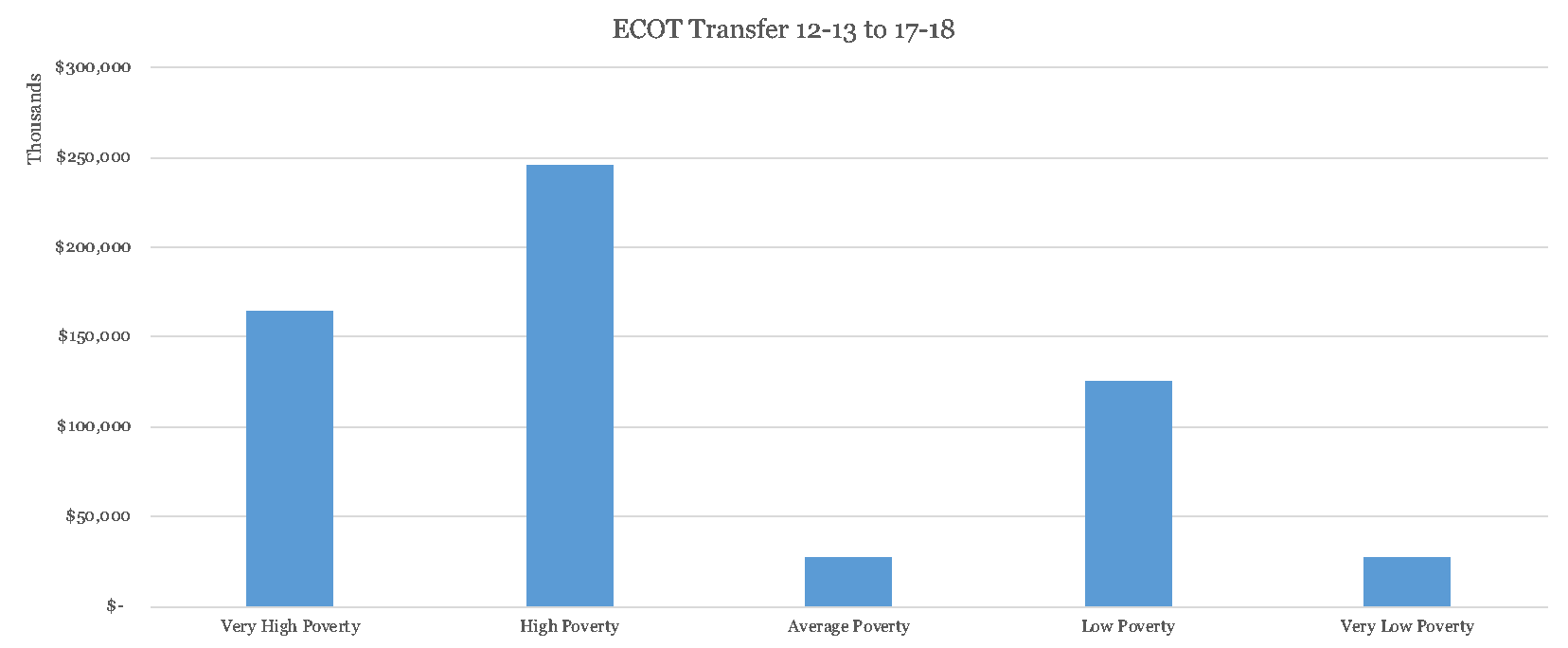FOR IMMEDIATE RELEASE
September 25, 2019
Columbus, OH – A report from Innovation Ohio focused on the state’s new budget finds a huge increase in spending on voucher payments to private schools and a return to lax, pre-ECOT scandal charter school oversight. This is the latest budgetary explosion for a voucher program that has increased more than 600% since 2011.
The report is available at https://innovationohio.org/2019/09/23/exploding-vouchers-charter-school-oversight/
“Given the ECOT scandal, it is astounding that statehouse leaders would loosen rules around failing charter schools that suck money out of Ohio public school classrooms,” said Innovation Ohio Education Fellow and report author Stephen Dyer. “What we need is closer scrutiny and reigning in these payments to private schools.”
The report highlights four key giveaway to poor-performing, privately run schools:
1. Weakening rules to automatically close failing charter schools
2. Lowering standards for dropout recovery schools
3. Weakening oversight of charter school sponsors, many of whom are for-profit companies
4. A huge increase in public dollars flowing to private schools via vouchers
The voucher expansion alone could cost Ohio public school districts another $73 million over two years, on top of an already ballooning $389 million per year private school voucher program.
Over the last several years, Innovation Ohio has been leading the fight to expose Ohio’s failing charter school system and sounding the alarm bells around expanding voucher programs.
###


 When the Electronic Classroom of Tomorrow (ECOT) was caught billing the state a total of $80 million in 2015-2016 and 2016-2017 for students they couldn’t prove they actually educated, the immediate question arose: how much more did they potentially rip off taxpayers during their entire 18 years in operation?
In 9 of the 18 years of ECOT’s existence, the Department of Education found and documented overpayments of various sizes. Based on these findings, we took the percentage overpayment in each of those years, calculated an average percentage of overpayment during those FTE reviews, then applied that to the years in which ECOT’s enrollment wasn’t scrutinized. The estimated overpayment was combined with the previously-reported overpayments, and the result is that
When the Electronic Classroom of Tomorrow (ECOT) was caught billing the state a total of $80 million in 2015-2016 and 2016-2017 for students they couldn’t prove they actually educated, the immediate question arose: how much more did they potentially rip off taxpayers during their entire 18 years in operation?
In 9 of the 18 years of ECOT’s existence, the Department of Education found and documented overpayments of various sizes. Based on these findings, we took the percentage overpayment in each of those years, calculated an average percentage of overpayment during those FTE reviews, then applied that to the years in which ECOT’s enrollment wasn’t scrutinized. The estimated overpayment was combined with the previously-reported overpayments, and the result is that  Looking at just the districts’ poverty classification, ECOT received about 2/3 of its money from poor or very poor Ohio school districts. No surprise there. However, the next largest category of funding came from low poverty districts. More money came from Ohio’s wealthiest districts than school districts with average poverty.
What does all this mean? It means that ECOT’s largest impact was on Ohio’s poorest districts and students — areas and populations that have traditionally suffered outsized portions of public scandals like ECOT. However, the scale of ECOT’s scam was so large that even Ohio’s wealthiest school districts were not immune from this school’s politically connected tentacles.
Looking at just the districts’ poverty classification, ECOT received about 2/3 of its money from poor or very poor Ohio school districts. No surprise there. However, the next largest category of funding came from low poverty districts. More money came from Ohio’s wealthiest districts than school districts with average poverty.
What does all this mean? It means that ECOT’s largest impact was on Ohio’s poorest districts and students — areas and populations that have traditionally suffered outsized portions of public scandals like ECOT. However, the scale of ECOT’s scam was so large that even Ohio’s wealthiest school districts were not immune from this school’s politically connected tentacles.
 Prior to its closure, the Electronic Classroom of Tomorrow (ECOT) received state tax dollars the same way as all Ohio charter schools — by deducting state aid from the local public school district where the ECOT student lives. Since the 2012-2013 school year, ECOT collected $590 million in taxpayer funding from all but 6 of Ohio’s 613 school districts. Included in that $590 million was the $87 million the school was slated to receive this school year before closing in
Prior to its closure, the Electronic Classroom of Tomorrow (ECOT) received state tax dollars the same way as all Ohio charter schools — by deducting state aid from the local public school district where the ECOT student lives. Since the 2012-2013 school year, ECOT collected $590 million in taxpayer funding from all but 6 of Ohio’s 613 school districts. Included in that $590 million was the $87 million the school was slated to receive this school year before closing in 